Seeing a loved one caught in a dangerous cycle of addiction can be one of the most trying situations. It is not uncommon for individuals with a substance abuse problem to deny they even have a problem despite their loved ones knowing they need help. You may feel like you’re stuck in a hopeless situation, but, in these situations, a well-planned intervention could be the saving grace.
An addiction intervention is an organized, strategically planned event meant to encourage an individual with a substance abuse disorder to commit to treatment. This event is usually organized by family, friends or loved ones who have sincere concerns about the individual’s well-being. Take a look at a few tips for a successful intervention below.
Helpful Tips for an Intervention
- Carefully Decide Who Should be Involved
The people asked to take part in an addiction intervention should be carefully chosen. The general rule is everyone involved should have a meaningful or personal relationship with the individual. Those who have tumultuous relationships with the individual or who are highly emotional may not be the best to include. Remember, intervention is about assisting, motivating and showing soothing support. Each member of the intervention team should be prepared to bring only these attributes to the event.
- Secure a Private Location Away From Home
Interventions are best held away from home. An intervention in a residential home gives the individual spaces for retreat. Further, there may be negative memories or connotations associated with a home that allows some of those feelings to bleed into the intervention. Instead, go for a more neutral location that offers privacy and a level of formality. A few examples could be a therapist’s office, a community center or a local place of worship.
- Pick the Appropriate Intervention Time
Try to choose a time when the individual will be in his or her most sober state. For example, if the individual commonly uses drugs early in the day, plan the intervention later in the afternoon when he or she will be more sober minded. It can be highly difficult to reach someone on an emotional level when intoxicated or under the influence of drugs or alcohol.
- Make a Plan for Each Speaker’s Order
Interventions have to be planned from start to finish. Before the event, decide who should speak and when. Allowing the right individual in the room to share thoughts at the right time can truly make a difference. In many cases, it is good to start with the person in the room that has the strongest connection to the individual, such as a child or parent. It is also good to end on a high note with someone such as a spouse or partner.
- Prepare for the Intervention in Advance
Each intervention attendee should plan what to say in advance. These talks should not involve winging it or speaking on the fly. The goal is to state what needs to be said and keep high emotions at bay. Writing down your thoughts helps to create constructive thoughts that are clear and easy to convey during the intervention. Make sure to get together before intervention day and rehearse the order of who speaks and allow each person to read aloud what he or she plans to say.
- Avoid Veering Away From Prepared Speeches
Scripts written for intervention can take a lot of time to formulate, but this is an important process. Certain words and phrases can provoke negative emotionally charged reactions from the individual, which is something to avoid. Once the scripts are planned, make sure everyone knows to stick to their written script once the intervention begins. Getting off track can leave too much room for the intervention to take a back seat to emotional conversations or arguments.
- Keep Emotions in Check
The individual addicted could react emotionally, get angry, become stoic or even try to start a fight. During all of this, it is important to keep your personal emotions in check. Avoid reacting, being confrontational or lashing out. Also, try to use non-aggressive or confrontational body language.
- Consider Working With an Interventionist to Help
A professional interventionist guides families who are planning an intervention. These individuals offer training, education and guidance to help with everything from picking the right place and anticipating barriers to polishing the scripts prepared before the event. An interventionist can also help you find the best treatment options and make arrangements for immediate transport from the intervention to the treatment center.
Find Intervention Support at Vanguard Behavioral Health
At Vanguard, we wholly understand the desperation you can feel when a loved one needs help with mental health and substance abuse disorders. We strive to offer people in your shoes the support and guidance they need, including support from a trained interventionist who can help along the way.
We offer a variety of treatment options, including dual diagnosis treatment, in Albuquerque, NM, and Tucson, AZ, where your loved one can go after accepting help during an intervention. Reach out to discuss your needs today, so we can help your loved one start their journey to recovery.








